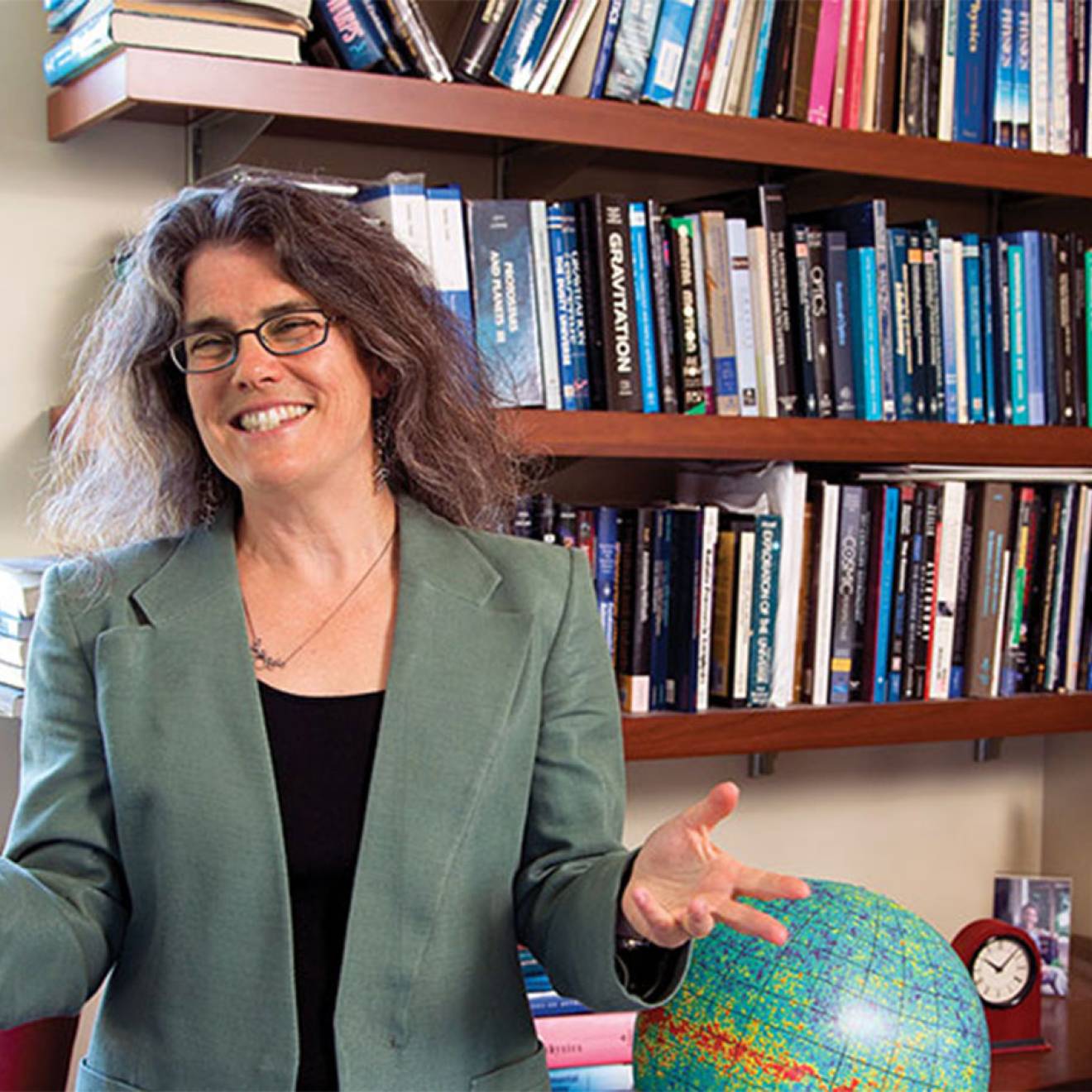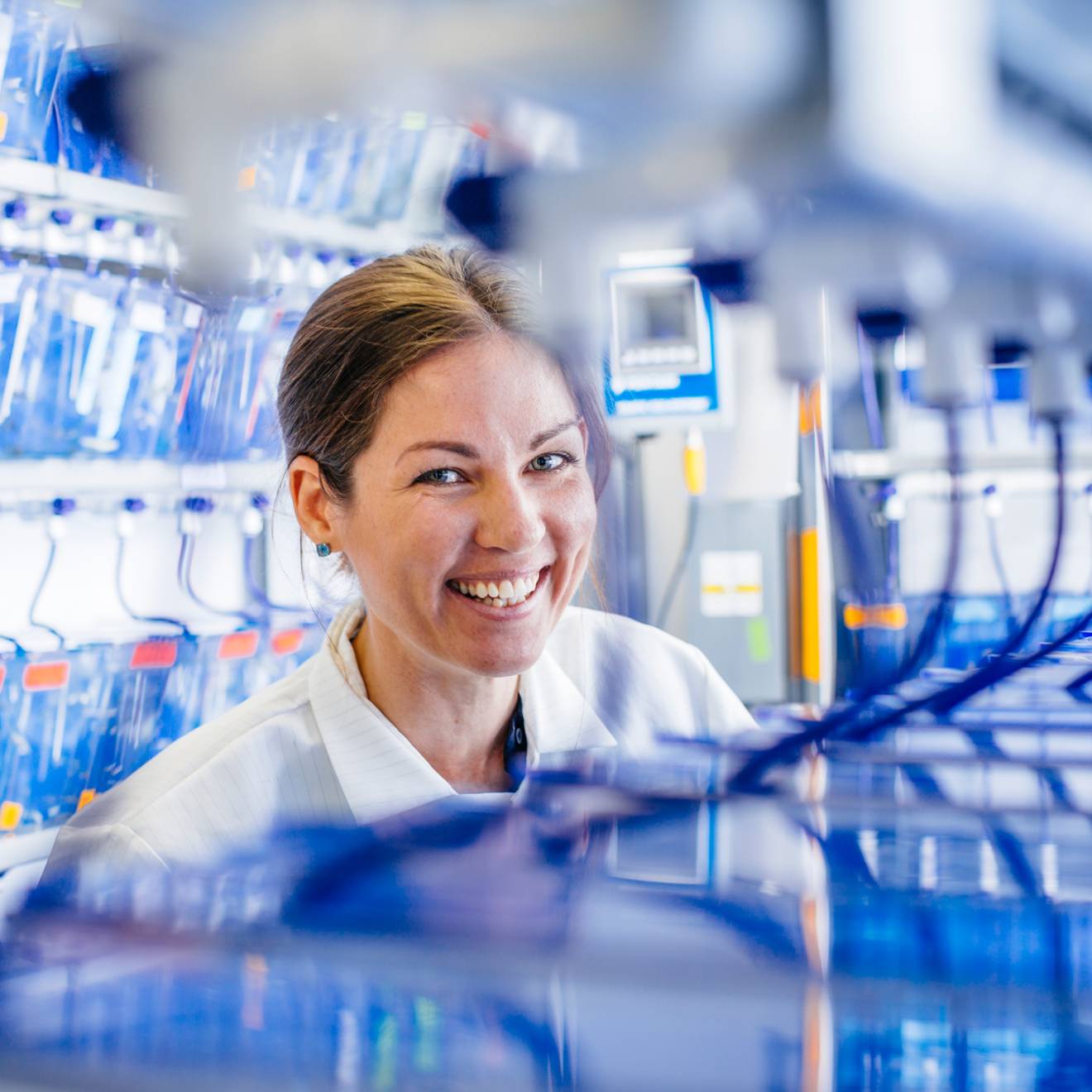UC Newsroom
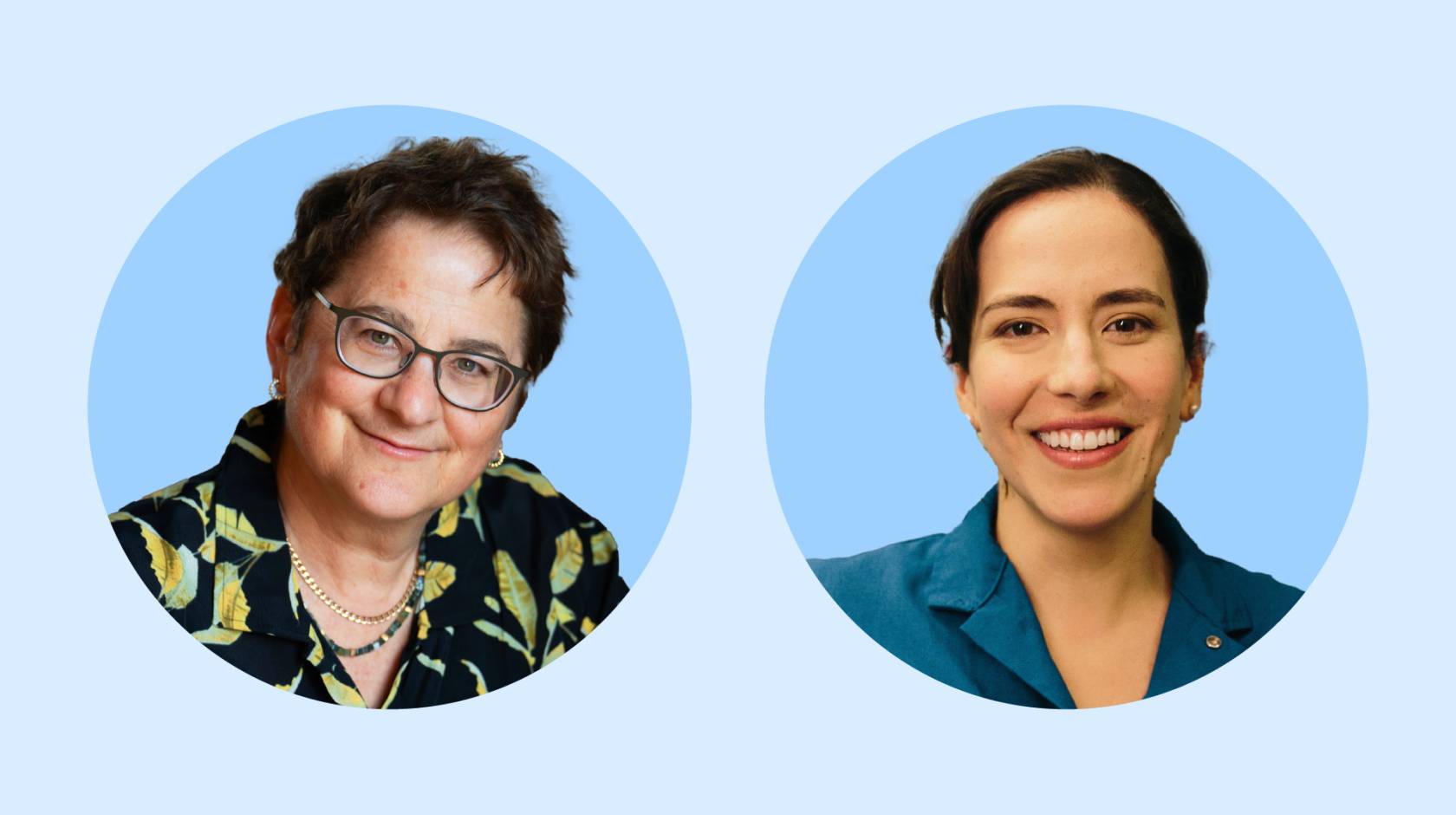
Eleven UC faculty have been awarded 2025 Guggenheim fellowships, a prestigious honor granted to distinguished artists and scholars that provides support for their creative and research endeavors.
The John Simon Guggenheim Memorial Foundation announced its 100th class of Guggenheim fellows earlier this April, comprising 198 fellows working across 53 disciplines in the arts and sciences.
The UC honorees include philosophers, artists, engineers, scientists and a poet. They will each receive a stipend that allows them to pursue ambitious projects within their fields of expertise.
The Guggenheim Foundation was established in 1925 to “further the development of scholars and artists by assisting them to engage in research in any field of knowledge and creation in any of the arts, under the freest possible conditions.” More than 19,000 individuals have been granted $400 million in Guggenheim fellowships over the past 100 years.
Nearly 3,500 applicants were considered for this year’s class, with fellows chosen through a rigorous application and peer review process.
Guggenheim fellows frequently engage in timely issues with broad and immediate social impact in the creative arts, natural sciences, social sciences, and humanities. Previous fellows include more than 125 Nobel laureates, winners of the Pulitzer Prize, Fields Medal, Turing Award, Bancroft Prize, National Book Award, and other internationally recognized honors.
UC’s Guggenheim honorees are pursuing novel approaches in climate studies, engineering, medicine and more, and occupying the vanguard of arts and the humanities. Read more about this year’s fellows below:
UC Berkeley
Markita del Carpio Landry, chemistry: Nanobiotechnologist del Carpio Landry is an associate professor of chemical and biomolecular engineering as well as of neuroscience at UC Berkeley. Her work centers around two scientific problems. The first is helping scientists track how neurons in the brain communicate to help better understand psychiatric and neurodegenerative conditions, such as Huntington’s, Parkinson’s and depression. In 2023, Del Carpio Landry won the Baker Prize for research that has the potential to help create climate-resilient crops.
With the Guggenheim, she plans to combine these fields of inquiry to explore whether compounds extracted from plants used in Indigenous medicine in her home country of Bolivia could have potential as treatments for nervous system disorders. (Read more about her work here.)
Hannah Ginsborg, philosophy: Ginsborg is a longtime professor in UC Berkeley’s philosophy department, which she joined in 1988. In her scholarship, she considers how Enlightenment philosopher Immanuel Kant’s findings around judgment and cognition apply today, including how we perceive and form beliefs about the world around us, as well as our relationship with rules and norms. With her Guggenheim fellowship, which was underwritten by the Hocking-Cabot Fund for Systematic Philosophy, Ginsborg will take time away from teaching and administration to concentrate on writing a book, “Normativity Without Reasons.” In it, she’ll elaborate on her theory that the notion of normativity is more primitive than that of rationality, as demonstrated in the behavior of very young children, who will group objects that are alike and protest if a group of unsorted items is presented to them. This sense of “primitive normativity” plays a part in concept acquisition and language learning from a very young age and has implications for our understanding of human language development and its difference from how large language AI models operate. (Read more about her work here.)
UC Irvine
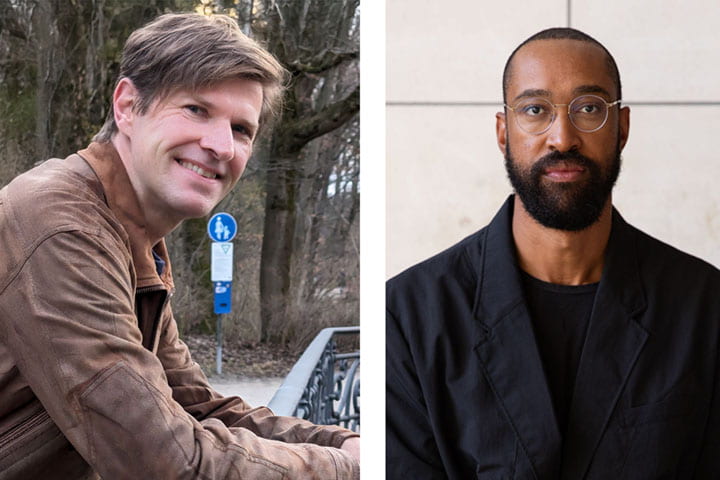
Coleman Collins, fine arts: Collins is an interdisciplinary artist, writer and researcher whose most recent work examines the connections between “things in the world” and their digital approximations, paying particular attention to the ways in which real and virtual spaces are socially produced. Utilizing sculpture, video, photography and text, he seeks a synthesis of seemingly opposed terms: subject and object, object and image, original and duplicate, and freedom and captivity. Collins earned an MFA at UCLA in 2018 and was a 2017 resident at the Skowhegan School of Painting and Sculpture. Collins’ work has been viewed and screened around the world and is held in the permanent collection of the Hammer Museum in Los Angeles. He will use Guggenheim support to produce a new body of work that continues his exploration of the resonance between the emergent cultures of diasporic groups and the effects of digital methods of transmission, copying and reiteration. (Read more about his work here.)
Simon Huttegger, philosophy: Huttegger is the Chancellor’s Professor of Logic and Philosophy of Science at UC Irvine, where his work focuses on game and decision theory, the philosophy of science, the foundations of probability, the theory of measurement, and the philosophy of biology. He is a co-editor of The Review of Symbolic Logic, a journal which focuses on research at the intersection of logic, philosophy, and the sciences, and is the author of “The Probabilistic Foundations of Rational Learning.” Huttegger will use the Guggenheim Fellowship to support his research on the mathematical, statistical and philosophical foundations of inductive reasoning. (Read more about his work here.)
UCLA
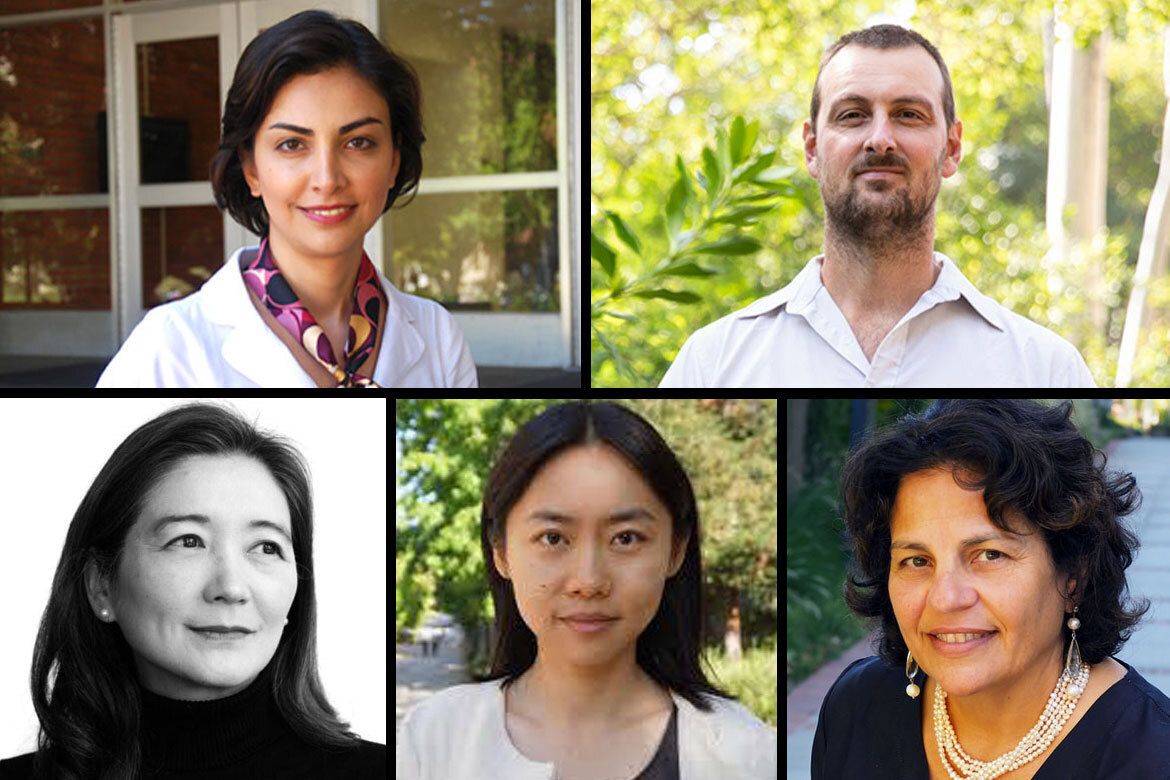
Mona Jarrahi, engineering: Jarrahi, who holds the Northrop Grumman Chair in Electrical Engineering, focuses on the development and application of novel electromagnetic techniques. As director of the Terahertz Electronics Laboratory at UCLA, she studies ultrafast electronic and optoelectronic devices with a focus on expanding the capabilities of terahertz sensing, imaging and communication systems for applications in a variety of areas, ranging from atmospheric research and biological analysis to medical imaging. Jarrahi is also a member of the California NanoSystems Institute at UCLA.
Jingyi Jessica Li, data science: An interdisciplinary expert in statistics and genomics and professor of biostatistics at the UCLA Fielding School of Public Health, Li focuses on developing statistical and computational tools to answer biological and biomedical questions, including reducing false positives in the analysis of large RNA sequencing data sets. Her research aims to provide more reliable information about genetics and cell biology, with significant potential positive impacts in the prevention and treatment of disease. Li is also a faculty member in the interdepartmental doctoral program in bioinformatics and leads the Junction of Statistics and Biology, a research group focused on bridging methodological innovation with impactful biomedical applications.
Suk-Young Kim, theatre arts & performance studies: Professor and head of theater and performance studies at the UCLA School of Theater, Film and Television, Kim’s research interests cover a wide range of disciplines, from East Asian performance and visual culture to Russian and Slavic literature and folklore. Her work focuses primarily on body politics, transmedia, the entertainment industry and the historical roots of today’s popular culture. She is the author of several books on Korean pop music and television and is a sought-after media commentator on Korean politics, culture and media.
Carolina Lithgow-Bertelloni, Earth science: Lithgow-Bertelloni, who holds UCLA’s Louis B. and Martha B. Slichter Chair in Geosciences, studies the connections between Earth’s surface processes and the subsurface forces that drive and shape them. As the leader of the KGB Lab, her recent work has reexamined the strength of Earth’s mantle and explored the ways in which the mantle’s fluid dynamics and thermodynamics may have influenced the planet’s thermal and biological evolution. She has developed and applied techniques of particle image velocimetry and thermometry to visualize vigorous flow in very viscous fluids, aiding our understanding of Hawaiian volcanoes.
Park Williams, climate studies: Williams, who holds a joint appointment in the UCLA Department of Atmospheric and Oceanic Sciences, is a hydroclimatologist who uses statistical analyses of climate data, reconstructions of past ecosystem behavior and a detailed understanding of plant ecology to study the impacts of climate on Earth’s water and land systems. His research aims to improve our understanding of how climate change influences the hydrological cycle and ecological dynamics and how extremes like drought, floods, heat waves and wildfires affect life on the planet. Williams, who runs the HyFives research lab at UCLA, was awarded a MacArthur “genius” grant in 2023.
UC San Diego
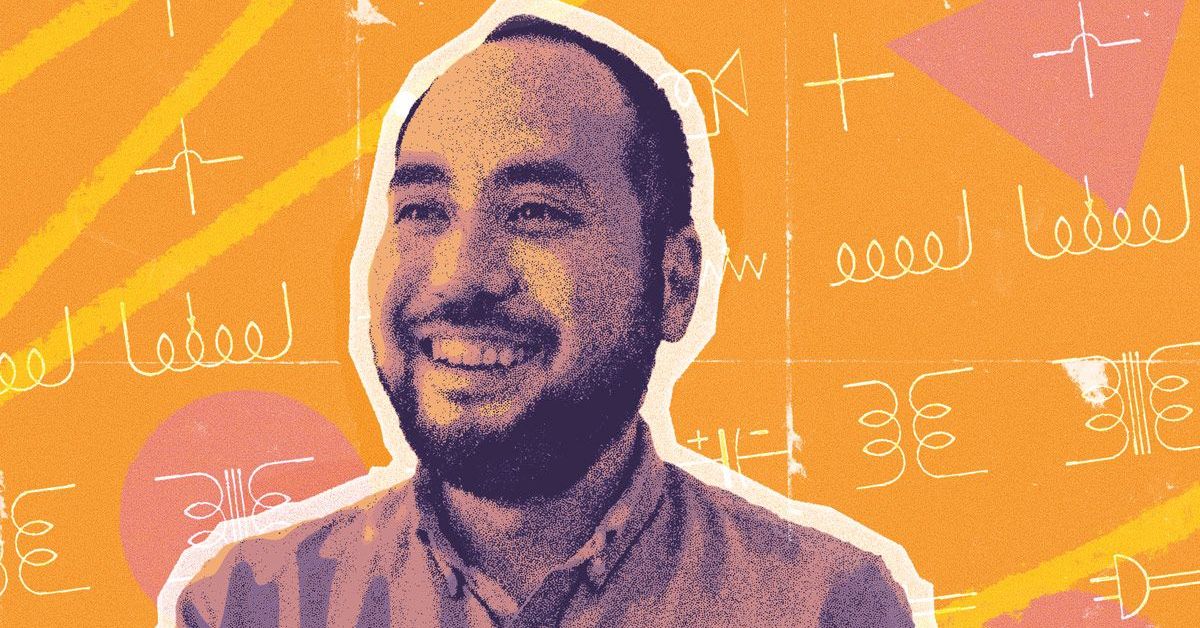
Brandon D. Som, poetry: Associate professor of poetry at UC San Diego, Som is the 2024 Pulitzer Prize winner in poetry for his second full-length collection, “Tripas.” The work draws together the languages and stories of his multicultural, multigenerational home, from his Chicana grandmother who worked on a Motorola assembly line to his Chinese American father and grandparents who ran a family corner store. As a faculty member at UC San Diego, Som’s research focuses on human rights, labor injustice and environmental racism — each a major factor in the decisions of millions each year to uproot their lives in search of freedom, opportunity and safety. He seeks to elevate the narratives of those who have been overshadowed or erased, particularly among transnational communities, and in his teaching and workshops, which examine the construction of self and recognition of the interconnectedness of cultures. Read an excerpt of “Tripas” and learn more about his work here.
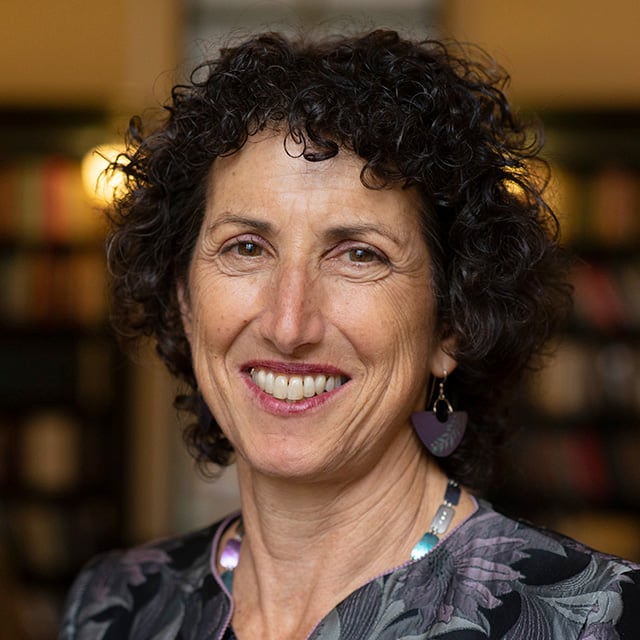
Dr. Rita Redberg
UC San Francisco
Dr. Rita Redberg, medicine & health: Dr. Redberg is a general cardiologist interested in preventive cardiology and a professor at UCSF. Her main clinical interests include treatment of all types of heart disease, while her research interests focus on our use of medical procedures and devices. She studies the regulatory process for medical devices and the strength of evidence that supports them, particularly high-risk devices, both before and after they are marketed. She is a strong proponent of high-quality data to support safety and effectiveness for medical devices and has testified before Congress multiple times on these issues. For nearly 15 years, Redberg was also the Editor-in-Chief of JAMA Internal Medicine, a highly ranked international medical journal. Dr Redberg also served on the Medicare Payment Advisory Commission, which advises Congress on medical payment policy. Dr. Redberg has written, edited and contributed to many books, including “You Can Be a Woman Cardiologist,” “Heart Healthy: The Step-by-Step Guide to Preventing and Healing Heart Disease,” and “Coronary Disease in Women: Evidence-Based Diagnosis and Treatment.” (Read more about her work here.)
UC Berkeley, UC Irvine, UCLA and UC San Diego contributed to this piece.
Read more:
UC Berkeley: Two Berkeley professors receive prestigious Guggenheim fellowships
UC Irvine: Coleman Collins and Simon Huttegger are named 2025 Guggenheim Fellows
UCLA: Guggenheim Fellowships awarded to 5 UCLA faculty members
UC San Diego: UC San Diego professor wins 2024 Pulitzer Prize in poetry
